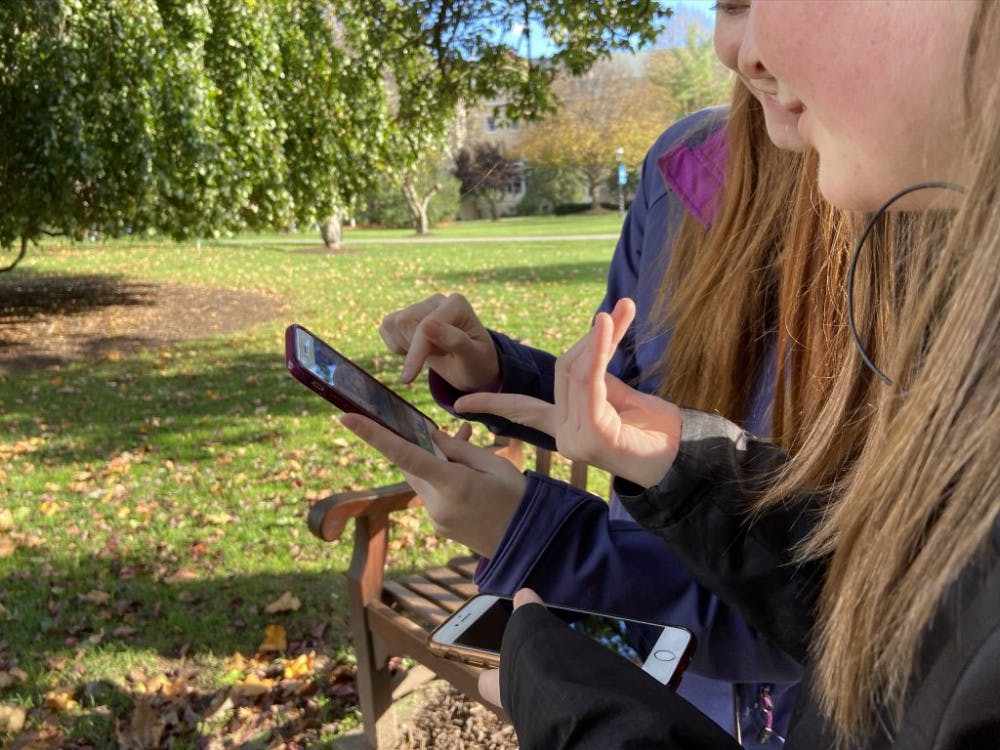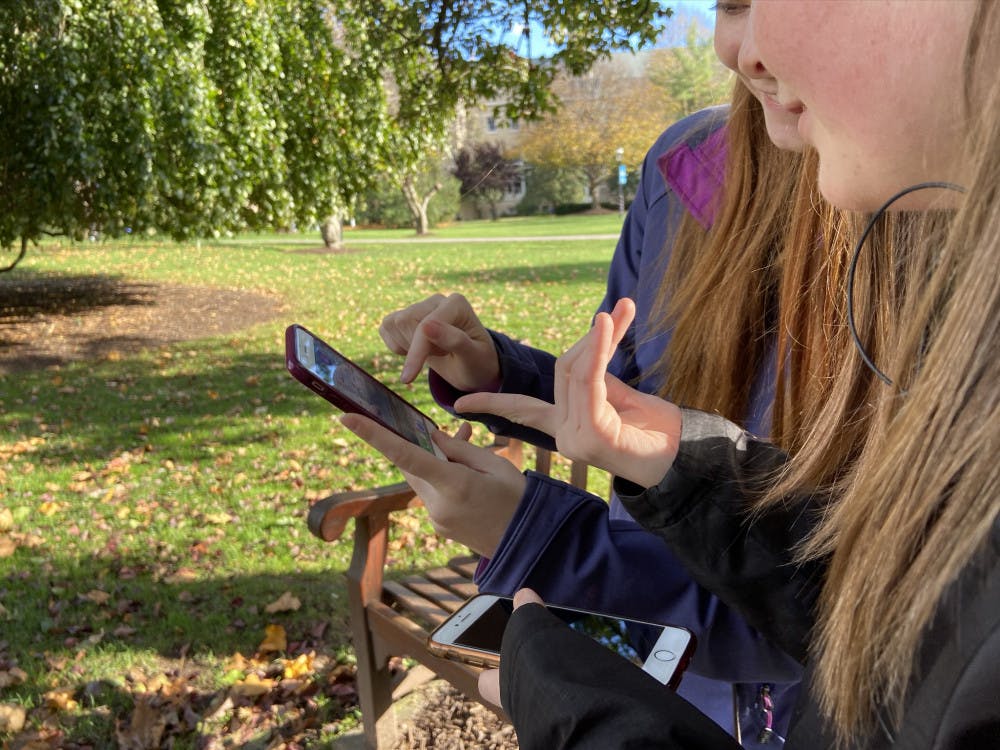You’re sitting in class and you feel your phone vibrate. When you turn on the screen, there’s no notification.
A 2017 study by Observer said that 80% of college students have experienced this phenomenon dubbed the “phantom text message.”
People spend on average two and a half hours per day on social media, and while scientists have proven that cell phone addiction is real, many are uncertain whether social media is addictive.
Seton Hall students shared their opinion on whether they believe social media addiction is real.
“I supposed it is real, people are always on their phones all the time,” Mia Nocho, a sophomore biology major, said.
Dhruv Alphonso, a senior public relations major, said he finds himself checking his phone at least 25 to 30 times a day, even when he does not have notifications. Alphonso said that before starting his work, he checks Instagram and Snapchat.
Saajan Modi, a junior social and behavioral sciences major, shared his opinion on social media’s impact on people.
“Our generation is always making sure their Instagram profiles are accurate and up to date, people are always on Snapchat looking at pictures,” Modi said.

Students shared mixed thoughts on social media addiction and how it has impacted their lives.
An article by Science Focus explained that features like “pull-torefresh” are similar to pulling a slot machine lever and that the amount of “likes” on a post represents a physical “score” of social validation. These are ways social media companies program their apps to become more addictive.
A few students shared their thoughts on how social media has affected their attention to focusing on schoolwork.
“When I am studying especially, like reading notes, I’ll always be looking at my phone,” Modi said. “I’ll scroll through Instagram, I’ll go on Snapchat and waste a lot of time.”
Jasmine Silvestre, a junior biology major, said she has learned to not focus on social media and focus more on schoolwork.
Alphonso discussed whether he believed in whether social media addiction was inherent or developed over time.
“I’d say it is definitely something that anyone who uses social media can have…because even older people are more addicted to it than some young people,” Alphonso said.
“It is becoming more inherent because parents are exposing their children to technology at younger ages than ever before,” Silvestre said. “Since children learn from copying others, if their parents are addicted to social media, so will their children.”
Other students felt that social media addiction grows over time.
“I think it’s developed over time as apps have continually updated and become more a part of our culture,” Nocho said.
Jeremy Veitch, a senior social and behavioral sciences major said, “It’s definitely something that grows over time, and it’s for our generation specifically…it’s like if you give a kid candy, if you keep giving them candy, they’re going to get addicted to it. This is our candy.”
Students also recognized the benefits of social media. Veitch said that Twitter has helped him know a lot about what happens in the world and learn new things.
Modi said, “There are various platforms that are useful in the sense that you can market yourself and show employers your capabilities, strengths and skills.”





